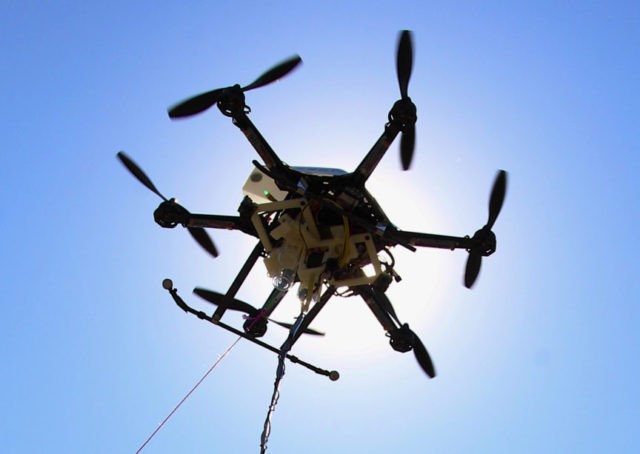The United States Army will no longer employ Chinese-made DJI brand drones in any capacity, due to potential security risks.
Following a classified study by the Army Research Laboratory, and alongside a Navy report entitled ““Operational Risks with Regards to DJI Family of Products,” the Army has terminated all use of DJI drones. DJI is the most prolific drone manufacturer in the world, and a former staple of our UAV fleet.
Both NASA and the Department of Energy have already ceased their of drones from the China-based company. Even the Department of Interior has grounded DJI drones, in favor of California’s 3DR. These changes run in parallel to the increasing scrutiny on drones by the FAA, who have already introduced more than 500 restrictions on their use on or near military installations.
Frost and Sullivan’s North American Research Director for Aerospace and Defense, Michael Blades, has estimated that 70 percent of drones in the air were built by DJI. He believes that DJI’s status as a privately-owned corporation could make them more vulnerable than a public one to pressure from the Chinese government.
Senior Software Security Engineer at Department 13 Kevin Finisterre advises some restraint, saying:
Even though I tend to be one of the more vocal folks against DJI, I have to caution folks on some of the lines of commentary here, as none of them have been ‘technically’ proven. I get the ‘allowing them to build a massive infrastructure database of this country’ line of chatter, but I have yet to see any factual basis for it.
DJI is expectedly displeased by the decision. Corporate Communications Director Adam Lisberg released a statement in response:
We are surprised and disappointed to read reports of the U.S. Army’s unprompted restriction on DJI drones, as we were not consulted during their decision. We are happy to work directly with any organization, including the U.S. Army, that has concerns about our management of cyber issues.
We’ll be reaching out to the U.S. Army to confirm the memo, and to understand what is specifically meant by ‘cyber vulnerabilities.’ Until then, we ask everyone to refrain from undue speculation.
Follow Nate Church @Get2Church on Twitter for the latest news in gaming and technology, and snarky opinions on both.

COMMENTS
Please let us know if you're having issues with commenting.